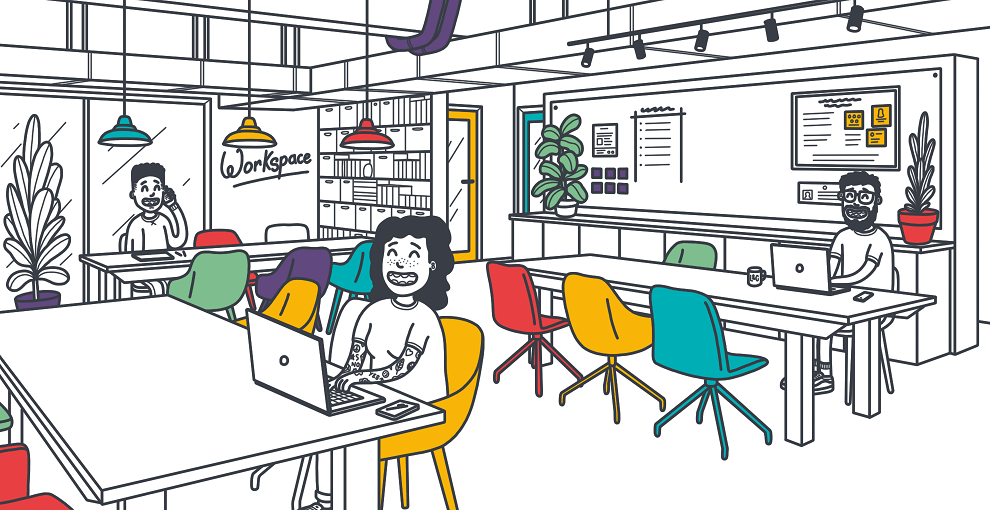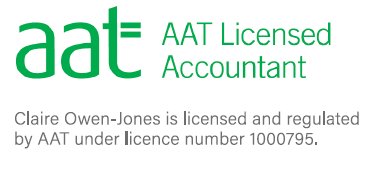So many of us see dipping into our overdraft as a natural part of running a business.
There's no shame in having an overdraft or even using that overdraft. After all the banks are quick to offer you one when you first set up your account and it is incredibly handy to have if cash flow is tight.
All you need is one customer to delay settling an invoice for a couple of days and that could be your pay run in trouble. What's the harm in going into the red for a couple of days, paying your staff and sucking up the small charge and then settling it again once the money comes in?
The ever-increasing expense that is bank charges and interest
But what happens if the money doesn't come in? Maybe that customer becomes a bad debt. Perhaps you get a run of new customers but that means that you need to spend more on the materials or stock to fulfil their orders before any money is received.
Suddenly the dipping into your overdraft becomes living in your overdraft and before you know it, you're balancing on the edge of the limit.
Then a cheque bounces and that's £35. A direct debit fails – another £35.
It's so easy to find yourself in a situation where the bank is sucking out any available cash your business has. So, you spend your time paying off the charges rather than replenishing your funds.
If you find yourself in this situation, you need to take a step back and review costs. Evaluate if there is anything that you can cut or anything that you can delay, if only to stop the charges.
Loan repayments are yet another fixed cost
We all like a fixed cost because it means that every month we know exactly what will leave our bank account.
It makes budgeting easier and it also makes sales targets easier.
Problems arise however if you have a seasonal business or just one where sales natural go up and down over the course of the year. If you have lots of variable costs then these will either naturally decrease because you'll be using less of them or often there is the flexibility to cut them out altogether.
Fixed costs are, by nature, fixed. So, your rent will remain the same value every month, your leases will remain the same, probably your accountancy fees will remain the same regardless of whether you've have had a good month or bad.
It's for this reason that you will probably want to balance the percentage of fixed to variable costs within your business. It will help with cash flow during those tighter periods.
You need to keep this in mind every time you take out a loan. Yes, the loan amount will be a wonderful cash injection into your business but for the years following, you'll have a fixed amount leaving your bank account every month.
It's important to consider whether your cash flow can cope with this, as the last thing you want is to have to take out another loan to pay for the original loan. Or pay bank charges on the overdraft that you've needed to go into just to cover the loan interest.
Never borrow for running costs
You should never take out a loan to cover the running costs of your business.
Your business should be able to generate enough income to cover its costs. If it can't, then you need to review not only your expenses but also your pricing and possibly your marketing.
There are many expenses within your business which are vanity based. The nicer office. The new computers. Some of the admin team or the new sales assistant. Cutting these will be very hard, but if you find yourself in the situation where you are getting into debt just to cover the costs of having them, you need to take the ego hit and stop.
I also include tax payments as a running cost. Try to save for these. Otherwise you will be stuck between paying interest on a loan or the interest and penalties on the late payments to HMRC. This is will wipe out any tax savings that you and your accountant have worked hard to achieve.
We are all overly positive about our businesses. They are our children and we often only see the good in them. But you need to stop and ask yourself what will happen if you don't convert that next lead. What if you don't make the sale?
Try to avoid justifying to yourself that it's okay to take out a little loan or push the overdraft limit this month because next month the money will roll in and everything will be okay. But then find that the next month isn't quite as good as planned, but of course the following month it will be…
When you need to invest to move forward
Although borrowing for running costs is a no, no you may want to take more of a risk when it comes to capital items. This is an occasion where possibly taking out a loan is a good thing.
Clearly it is better to save and pay for everything using your own pot of cash. That said, your business may reach a point where it needs further investment to push it forward.
If you are turning down potential sales because you need more equipment, a bigger office or another retail outlet, then a loan is a way of reaching your goals considerably faster.
You still need to consider the points mentioned above however and I highly recommend sitting down with your accountant and doing a proper cash forecast. You need to be sure that you will generate the income to cover the increased over heads and that the income will be consistent enough to deal with the additional fixed costs.
Putting your head in the sand has never solved anything
As with most things in life, ignoring a problem will rarely make it go away.
Cash flow is one of the areas within your business that you need to try and be slightly ahead of the game. A bank or loan provider will offer far more favourable terms if you come to them before you are in trouble.
Keep an eye on your overdraft and if you can see yourself heading into problems, ask your bank to extend it. It is better to have a larger overdraft that you do not use, than reaching your limit and then having to ask for help when you've got £35 being charged several times a day.
If you are the type of person who likes a budget or a forecast, then ask your accountant to help you to prepare one. That way you will be able to see in advance what months are likely to be tight and even what costs you can no longer afford.
The goal is to avoid becoming a zombie business exists purely to pay off its loans.
There's no shame in having an overdraft or even using that overdraft. After all the banks are quick to offer you one when you first set up your account and it is incredibly handy to have if cash flow is tight.
All you need is one customer to delay settling an invoice for a couple of days and that could be your pay run in trouble. What's the harm in going into the red for a couple of days, paying your staff and sucking up the small charge and then settling it again once the money comes in?
The ever-increasing expense that is bank charges and interest
But what happens if the money doesn't come in? Maybe that customer becomes a bad debt. Perhaps you get a run of new customers but that means that you need to spend more on the materials or stock to fulfil their orders before any money is received.
Suddenly the dipping into your overdraft becomes living in your overdraft and before you know it, you're balancing on the edge of the limit.
Then a cheque bounces and that's £35. A direct debit fails – another £35.
It's so easy to find yourself in a situation where the bank is sucking out any available cash your business has. So, you spend your time paying off the charges rather than replenishing your funds.
If you find yourself in this situation, you need to take a step back and review costs. Evaluate if there is anything that you can cut or anything that you can delay, if only to stop the charges.
Loan repayments are yet another fixed cost
We all like a fixed cost because it means that every month we know exactly what will leave our bank account.
It makes budgeting easier and it also makes sales targets easier.
Problems arise however if you have a seasonal business or just one where sales natural go up and down over the course of the year. If you have lots of variable costs then these will either naturally decrease because you'll be using less of them or often there is the flexibility to cut them out altogether.
Fixed costs are, by nature, fixed. So, your rent will remain the same value every month, your leases will remain the same, probably your accountancy fees will remain the same regardless of whether you've have had a good month or bad.
It's for this reason that you will probably want to balance the percentage of fixed to variable costs within your business. It will help with cash flow during those tighter periods.
You need to keep this in mind every time you take out a loan. Yes, the loan amount will be a wonderful cash injection into your business but for the years following, you'll have a fixed amount leaving your bank account every month.
It's important to consider whether your cash flow can cope with this, as the last thing you want is to have to take out another loan to pay for the original loan. Or pay bank charges on the overdraft that you've needed to go into just to cover the loan interest.
Never borrow for running costs
You should never take out a loan to cover the running costs of your business.
Your business should be able to generate enough income to cover its costs. If it can't, then you need to review not only your expenses but also your pricing and possibly your marketing.
There are many expenses within your business which are vanity based. The nicer office. The new computers. Some of the admin team or the new sales assistant. Cutting these will be very hard, but if you find yourself in the situation where you are getting into debt just to cover the costs of having them, you need to take the ego hit and stop.
I also include tax payments as a running cost. Try to save for these. Otherwise you will be stuck between paying interest on a loan or the interest and penalties on the late payments to HMRC. This is will wipe out any tax savings that you and your accountant have worked hard to achieve.
We are all overly positive about our businesses. They are our children and we often only see the good in them. But you need to stop and ask yourself what will happen if you don't convert that next lead. What if you don't make the sale?
Try to avoid justifying to yourself that it's okay to take out a little loan or push the overdraft limit this month because next month the money will roll in and everything will be okay. But then find that the next month isn't quite as good as planned, but of course the following month it will be…
When you need to invest to move forward
Although borrowing for running costs is a no, no you may want to take more of a risk when it comes to capital items. This is an occasion where possibly taking out a loan is a good thing.
Clearly it is better to save and pay for everything using your own pot of cash. That said, your business may reach a point where it needs further investment to push it forward.
If you are turning down potential sales because you need more equipment, a bigger office or another retail outlet, then a loan is a way of reaching your goals considerably faster.
You still need to consider the points mentioned above however and I highly recommend sitting down with your accountant and doing a proper cash forecast. You need to be sure that you will generate the income to cover the increased over heads and that the income will be consistent enough to deal with the additional fixed costs.
Putting your head in the sand has never solved anything
As with most things in life, ignoring a problem will rarely make it go away.
Cash flow is one of the areas within your business that you need to try and be slightly ahead of the game. A bank or loan provider will offer far more favourable terms if you come to them before you are in trouble.
Keep an eye on your overdraft and if you can see yourself heading into problems, ask your bank to extend it. It is better to have a larger overdraft that you do not use, than reaching your limit and then having to ask for help when you've got £35 being charged several times a day.
If you are the type of person who likes a budget or a forecast, then ask your accountant to help you to prepare one. That way you will be able to see in advance what months are likely to be tight and even what costs you can no longer afford.
The goal is to avoid becoming a zombie business exists purely to pay off its loans.







